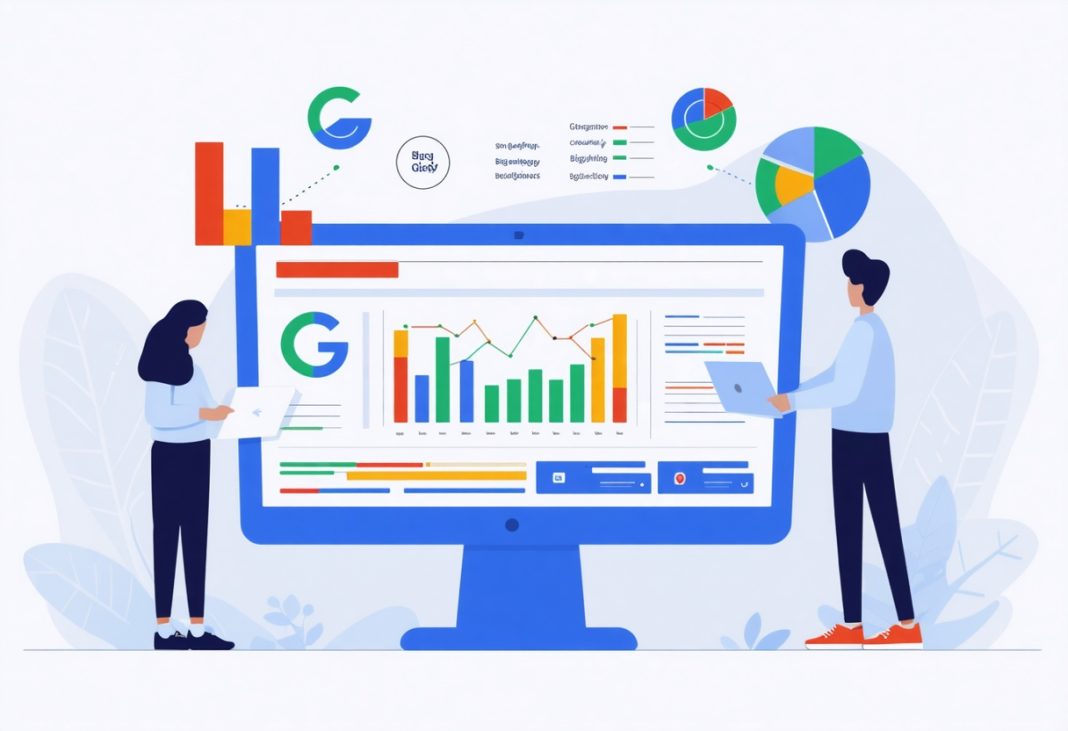Google BigQuery enhances AI advancements by integrating with Vertex AI to allow users to build and execute machine learning models using SQL, broadening access to AI capabilities for SQL-savvy users without advanced programming skills. It further supports generative AI features and real-time analytics, positioning itself as a comprehensive, AI-ready data platform that streamlines data management and fosters collaborative development across various data types and formats.
Introduction to Google BigQuery and AI
Google BigQuery is a powerful tool from Google Cloud that enhances AI capabilities. It supports a wide range of AI tasks by integrating with Vertex AI and other Google Cloud services. Users can leverage BigQuery ML to create and execute machine learning models directly using SQL, making it accessible for those familiar with SQL but not advanced programming.
- Features of BigQuery ML:
- Enables the use of generative AI features, such as text summarization, sentiment analysis, and more.
- Supports text, image, video, and audio data analysis.
- Allows embedding to find items with similar meanings.
- Integrates with pretrained models for efficient data handling.
BigQuery is evolving into a unified AI-ready platform. It simplifies data management and boosts the flexibility for teams to collaborate using various languages and tools. The platform is designed to handle all data types and formats without the need for upfront sizing.
- Enhancements in BigQuery:
- New storage engine BigLake supports open table formats.
- Continuous SQL queries for real-time analytics.
- BigQuery Studio offers a collaborative space for data practitioners.
- Enhanced data governance with Dataplex’s search capabilities and managed disaster recovery.
These advancements make BigQuery a comprehensive solution for companies aiming to leverage data for insightful analytics and AI-driven solutions.

Enhancing Data Management for AI
- Google BigQuery is transforming into an AI-ready data platform, enhancing the way organizations handle large data sets. This improvement is crucial for AI model development and deployment.
- The platform supports all data types and formats, simplifying data management without the need for initial sizing. BigQuery allows data teams to use multiple programming languages and engines on a single data copy, fostering collaboration.
- Key features include BigLake, a unified storage engine that supports open table formats and manages Iceberg with DDL, DML, and streaming. Additionally, BigQuery Metastore offers a scalable metadata service with access control for analytics and AI.
- BigQuery integrates Python with its scalable architecture through DataFrames and includes a Spark engine for using PySpark alongside SQL. This integration helps in processing data for real-time analytics and AI applications.
- Enhancements in data governance are evident with the inclusion of Dataplex’s search capabilities in BigQuery and a new managed disaster recovery system that ensures automated failover of compute and storage resources.
- BigQuery Studio, now available, provides a collaborative space for data experts. The platform also introduces AI-driven tools for data preparation, analysis, and engineering, alongside intelligent recommendations to boost productivity and reduce costs.
- BigQuery ML facilitates AI operations by allowing users to utilize generative AI features and pre-trained Vertex AI models directly within the platform. This capability extends to tasks like text summarization, sentiment analysis, and visual content analysis.
- Users can engage with AI models in BigQuery through SQL, making it accessible for those familiar with SQL but not advanced programming. This integration speeds up the development of machine learning models by keeping data within the platform, avoiding the need to transfer data externally.
Case Studies: Google BigQuery in Action
- Google BigQuery is evolving into a unified platform that is ready for AI. It’s being used by thousands of organizations to power advanced data analytics.
- BigQuery now supports all data types and open formats, which means no upfront sizing is needed. This flexibility helps data teams work together more efficiently by using multiple languages and engines on the same data.
- New features in BigQuery include BigLake, a unified storage engine, and BigQuery metastore, a managed service that provides scalable metadata management. These features support a wide range of data operations and enhance security and data governance.
- BigQuery DataFrames and the integrated Spark engine allow the use of Python and PySpark for data processing. BigQuery also supports continuous SQL queries for real-time analytics.
- To improve data governance, BigQuery includes search capabilities from Dataplex and has introduced managed disaster recovery for better data protection. There’s also a new cross-regional service level agreement for reliability.
- A feature called BigQuery Studio is now available, providing a collaborative workspace for data practitioners. This tool helps in data preparation, analysis, and engineering, and offers AI-powered experiences and intelligent recommendations to optimize costs and boost productivity.
- Generative AI is becoming vital in enterprises, helping in areas like customer service, employee empowerment, and cybersecurity. Google Cloud’s technologies are crucial in developing AI agents that perform various tasks across different communication modes.
- BigQuery ML supports generative AI features using Vertex AI foundation models. This allows users to perform tasks like text summarization, sentiment analysis, and visual content analysis directly in BigQuery using SQL.

Future Prospects of Google BigQuery in AI
Google BigQuery is making significant strides in AI technology, focusing on the integration of generative AI models through Vertex AI. This integration allows data engineers and analysts to apply advanced reasoning to their data, benefiting sectors like healthcare and retail by improving patient care and customer engagement. Additionally, BigQuery now supports text and speech insights from unstructured data, which is a big step forward.
Recent updates include:
- Multimodal Embeddings: BigQuery supports embeddings that unify text and image data, enhancing text-based image searches.
- Data Canvas: An AI-centric tool that reimagines data workflows, enabling graphical data workflows supported by AI.
- Data Preparation: An AI-powered feature to simplify data transformation.
- Data Insights: Automates query generation, helping data analysts explore new datasets for deeper insights.
- Gemini in BigQuery: Functions as an AI pair programmer to facilitate a variety of tasks.
BigQuery is evolving into a unified AI-ready platform, supporting all data types and open formats without the need for upfront sizing. This flexibility allows data teams to use multiple languages and engines on a single data copy. Key features include:
- BigLake: A unified storage engine supporting open table formats.
- BigQuery Metastore: Provides universal table definitions and fine-grained access control.
- BigQuery DataFrames: Combines Python’s power with BigQuery’s scale.
- Continuous SQL Queries: Supports real-time analytics and AI solutions.
For enhanced data governance, BigQuery will include search capabilities powered by a unified metadata catalog. The platform also offers managed disaster recovery and a new cross-regional service level agreement.
Discover more about our services related to data analytics and insights:
- Google Analytics Audit
- Tag Manager Audit
- Facebook Conversion API
- Tracking Implementation Plans
- Mobile Tracking & Attribution
- Customer Data Platform (CDP)
- Server Side Tracking
- Tailor-Made Dashboard
- Digital Analysis
- Digital Maturity

FAQ
What is Google BigQuery and how does it support AI capabilities?
Google BigQury is a robust tool from Google Cloud designed to enhance AI functionalities. It integrates with Vertex AI and other Google Cloud services, allowing users to create and execute machine learning models using SQL. This accessibility makes it efficient for users familiar with SQL but not with advanced programming.
What are the key features of BigQuery ML?
BigQuery ML includes features like:
- Generative AI capabilities for text summarization and sentiment analysis.
- Support for analyzing text, image, video, and audio data.
- Integration with pretrained models for enhanced data management.
- Features like embeddings to identify items of similar nature.
What significant enhancements have been introduced in BigQuery?
Some of the newest enhancements in BigQuery include:
- The introduction of BigLake, a storage engine supporting open table formats.
- The capability to run continuous SQL queries enabling real-time analytics.
- BigQuery Studio, which offers a collaborative environment for data practitioners.
- Advanced data governance facilitated by Dataplex’s search capabilities and a managed disaster recovery system.
How does BigQuery transform the data management for AI?
BigQuery facilitates an AI-ready data management platform by supporting all data types and formats without the need for initial sizing. It includes features like BigLake and BigQuery Metastore for comprehensive data operations, and integrates Python and Spark engines to enhance data processing capabilities for AI applications.
Can you use Python with BigQuery for AI tasks?
Yes, BigQuery integrates Python through its scalable architecture using DataFrames in addition to employing a Spark engine for PySpark usage alongside SQL. This integration supports sophisticated data processing necessary for AI and real-time analytics.
What is BigQuery Studio and how does it support AI advancements?
BigQuery Studio is a new feature in BigQuery that provides a collaborative space for data experts, facilitating data preparation, analysis, and engineering. It includes AI-driven tools and intelligent recommendations to optimize cost efficiency and productivity, essential for advancing AI-related tasks.
How does BigQuery leverage generative AI features?
BigQuery leverages generative AI features by allowing the use of pretrained Vertex AI models to perform tasks such as text summarization, sentiment analysis, and visual content analysis directly within the platform, using SQL for model interaction.
What future prospects does Google BigQuery have in AI technology?
Google BigQuery is continuously integrating generative AI models via Vertex AI to support advanced data analytics like text and speech insights from unstructured data. The platform is also enhancing text-based image searches and automating query generation for deeper insights, aiming to transform sectors such as healthcare and retail by improving outcomes through data-driven decisions.




